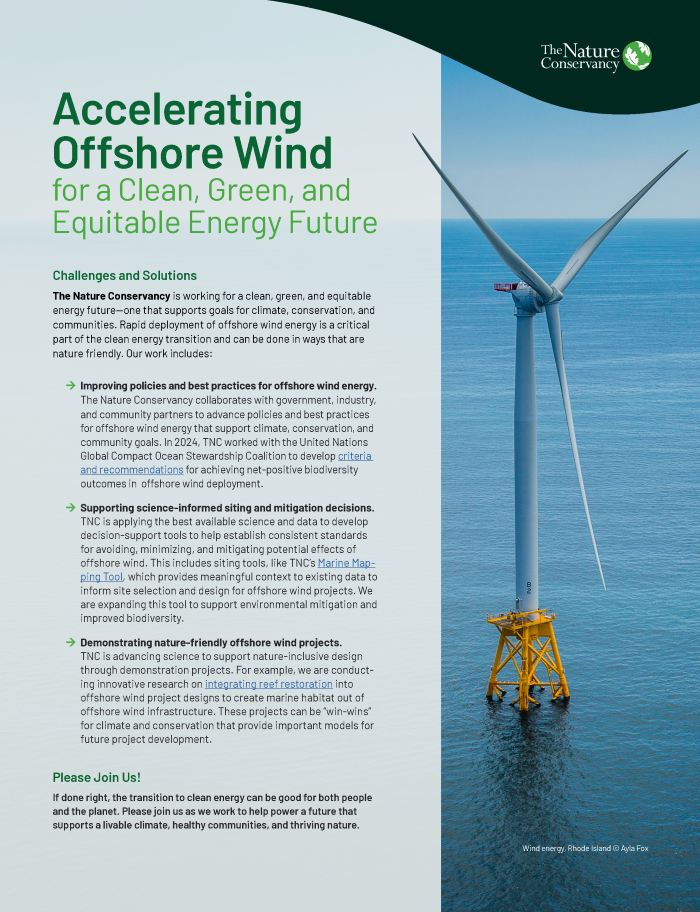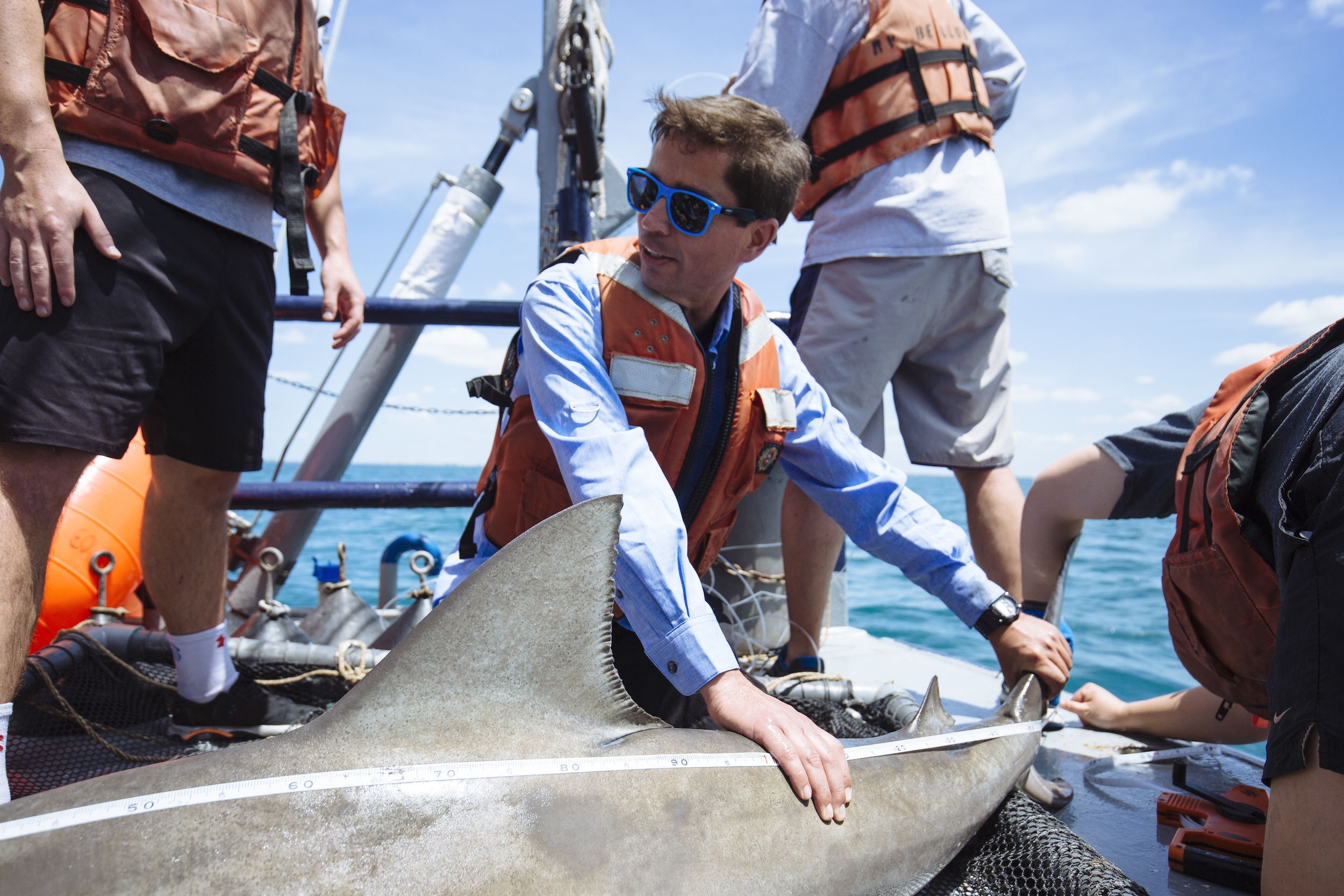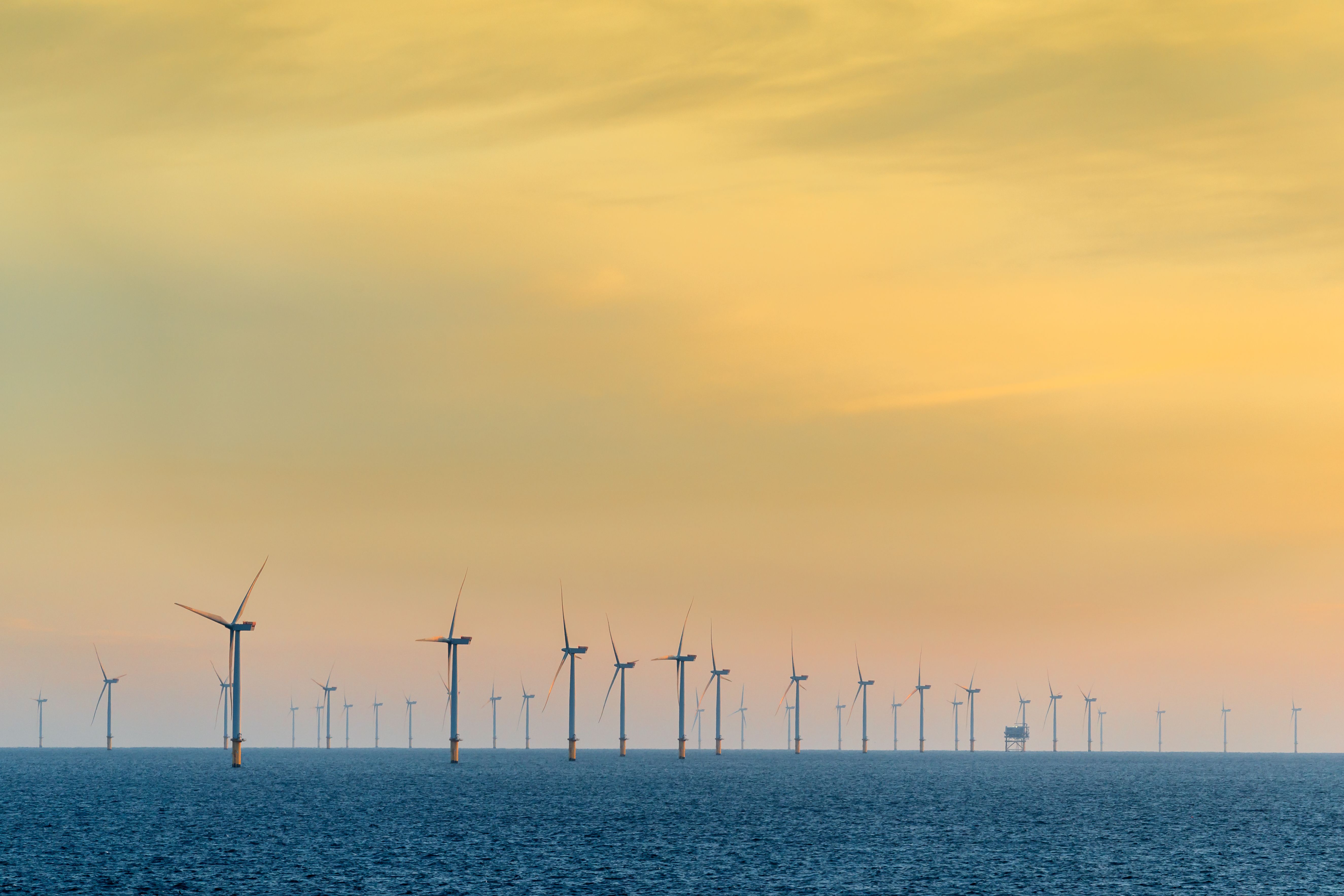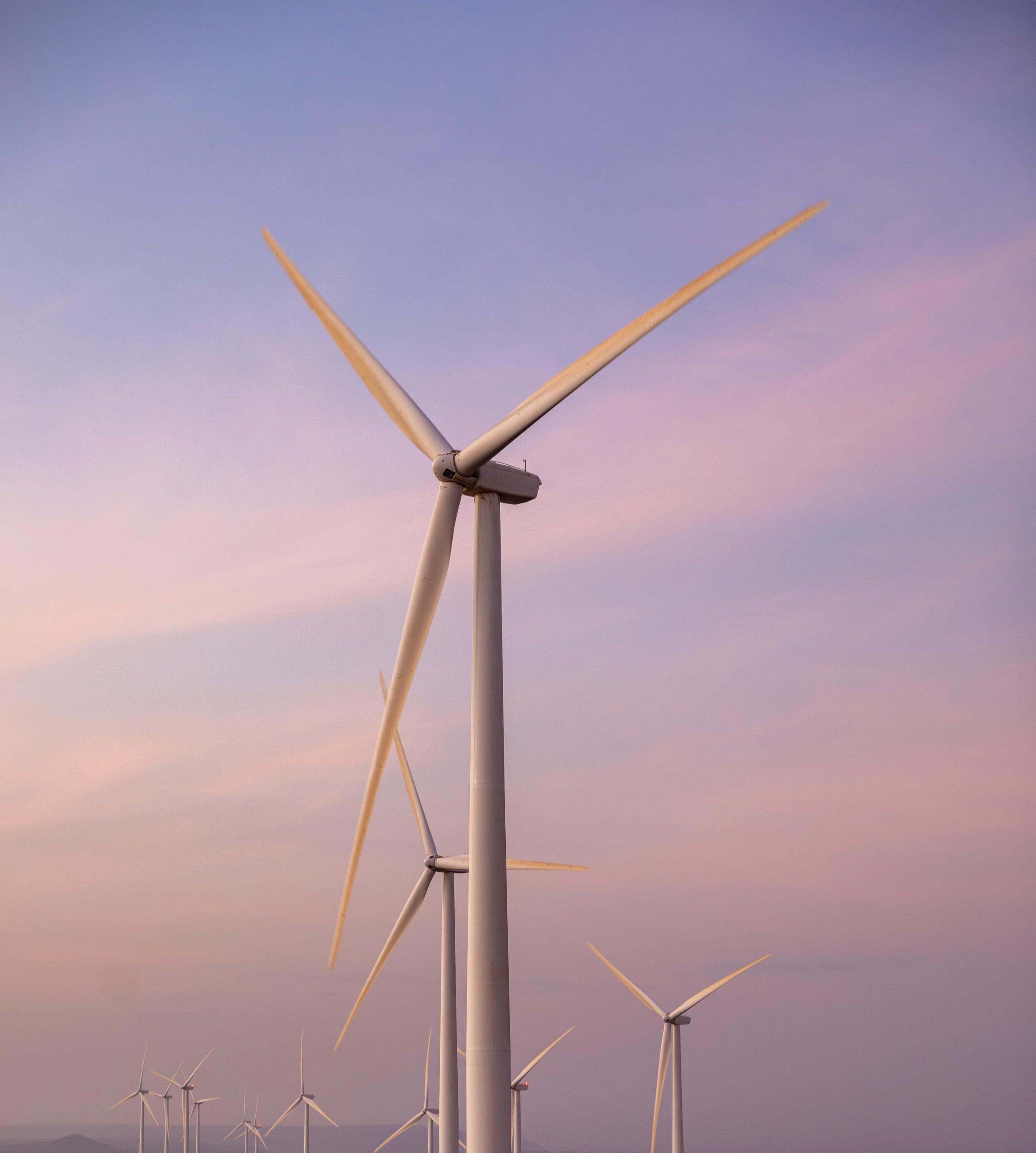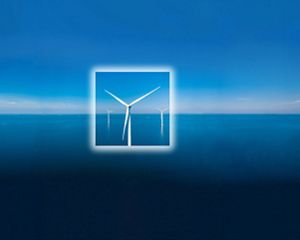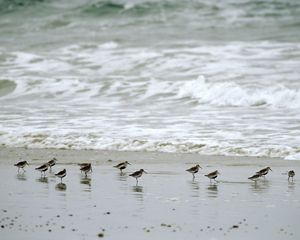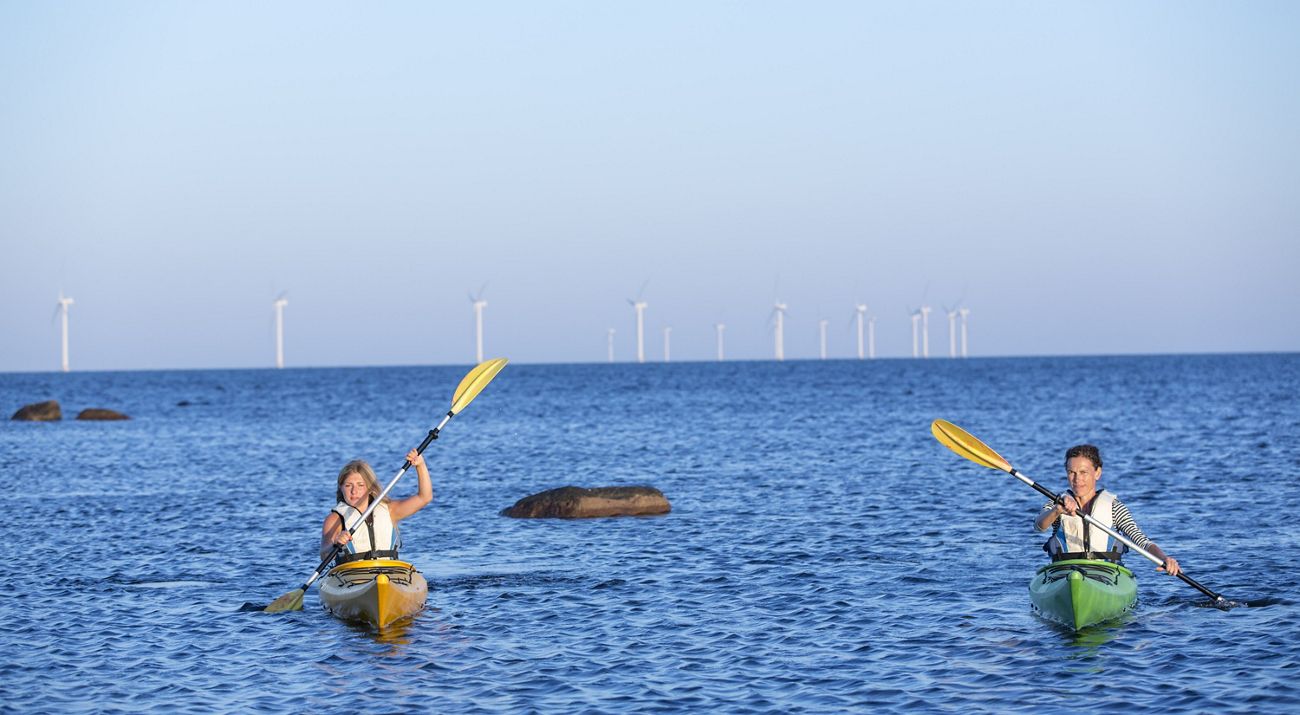
Offshore wind can help meet energy needs, reduce carbon pollution and could benefit marine life and ocean habitats around the world.
Offshore wind is a renewable energy technology that will be critical to decarbonizing electricity, making our communities and oceans healthier and our energy resources more reliable around the world. This is especially true along the Atlantic coast, where there is great potential for wind energy due to the consistent availability of wind during the winter.
Offshore wind can also provide quality jobs and boost economic investments in local communities. These opportunities have inspired many countries to set ambitious offshore wind goals and they are moving quickly to achieve them.
Double Down, Triple Up
TNC is committed to the global ambition of doubling energy efficiency rates and tripling global renewable energy capacity by 2030 to achieve the 1.5C pathway. Crucially, the world needs to install nearly 500 gigawatts (GW) of offshore wind by 2030 to achieve the climate targets.
While the information needs vary from place to place, there is great interest in sharing policies, science and tools to improve offshore wind technology and the benefits it provides. Given the need for rapid offshore wind infrastructure expansion, TNC uses the best available science to help decisionmakers avoid impacts to and maximize benefits to marine life and habitat and the ocean communities that rely on them.
Download
Learn how The Nature Conservancy is working for a clean, green, and equitable energy future by accelerating offshore wind energy.
Download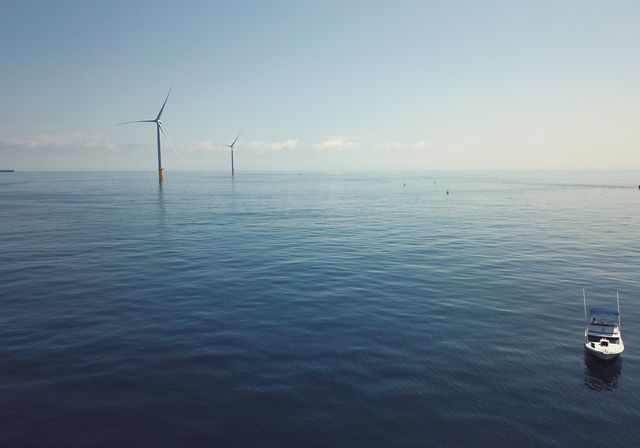
Quote: Tricia K. Jedele
Developing offshore wind is a 21st century conservation strategy. Pairing the reduction of planet warming emissions with thoughtful and innovative offshore wind development can help marine and coastal life flourish and bring new opportunities to communities.
Offshore Wind in Action
Explore how TNC accelerates offshore wind development in North America.
Stay Connected
Get the latest conservation stories, energy updates and opportunities near you.
Offshore Wind Webinar Series
Offshore wind is a complicated topic. We know it can be a critically important energy resource in our efforts to mitigate climate change, but it also evokes a lot of questions. In 2024, The Nature Conservancy launched a monthly seven-part webinar series to convene experts who can help us answer some of the most challenging questions we have about offshore wind and explore how it can help us create a cleaner, greener and more prosperous future. You can watch the recordings of these webinars here.
Webinar Recordings
A Windfall: Can offshore wind save money and the planet
Join us for a discussion hosted by Tricia Jedele, Offshore Wind Policy Manager for The Nature Conservancy. She will be in conversation with Melissa Whited, and Susan Muller about the results of their recent analyses on why offshore wind is so important in New England.
(00:58:56)
Mapping the Course: Navigating Offshore Wind Siting
Host Tricia K. Jedele, Offshore Wind Policy Manager of The Nature Conservancy, invites you to join us for a conversation about the federal siting process for offshore wind.
(00:57:21)
Whales and Offshore Wind: Addressing Myths and Facts
Host Tricia K. Jedele, Offshore Wind Policy Manager of The Nature Conservancy, invites you to join us to learn from Dr. Douglas Nowacek at Duke University’s Marine Lab about how whales use sound in the ocean and how they respond to a number of different pressures in the ocean, including noise.
(1:01:02)
Offshore Wind & Birds
Host Tricia K. Jedele, Offshore Wind Policy Manager of The Nature Conservancy, invites you to join us for a conversation about birds, climate change and offshore wind.
(1:00:21)
Understanding Interactions Between Fish & Offshore Wind
Join Dr. Brendan Runde, a TNC marine scientist, and Dr. Annie Murphy, a Principal Scientist at INSPIRE Environmental, to hear about the research they’ve been doing to understand more about how fish respond to offshore wind construction and adapt to new structures in the marine environment.
(00:59:21)
The Role of Data, Spatial Tools and Policy
Host Christopher McGuire, ocean program director for TNC in Massachusetts, Tricia K. Jedele, Esq., offshore wind policy manager at TNC, and Dr. Marta Ribera, spatial ecologist for North America Science at TNC talk about how they're using data, spatial tools and policy to benefit biodiversity.
(00:57:17)
Sharing the Social Value of Offshore Wind
Tune in to hear from Lindsay Dougan, senior community investment manager at SSE Renewables, and Mark James, associate professor and interim director of the Institute for Energy and the Environment at Vermont Law and Graduate School as they talk about community benefits agreements and offshore wind.
(00:58:01)
